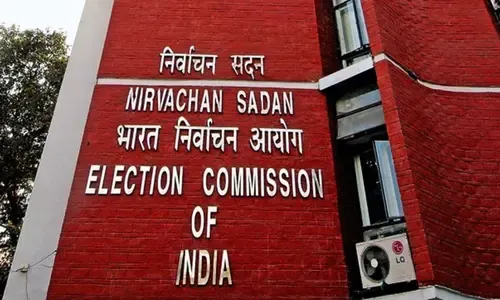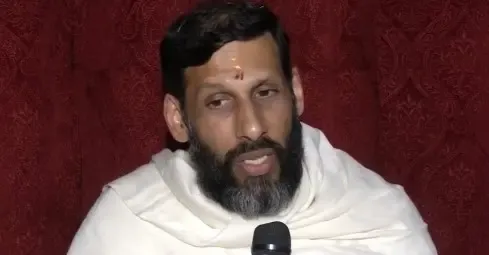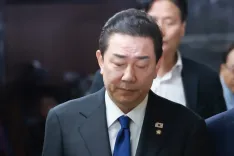Is the ICT Verdict Against Sheikh Hasina Really Malicious and Retaliatory?

Synopsis
Key Takeaways
- The Awami League has condemned the ICT verdict against Sheikh Hasina.
- The ruling has been labeled as malicious and vengeful.
- Two top aides of Hasina were also convicted.
- The party claims the tribunal lacks constitutional legitimacy.
- They aim to mobilize pro-Liberation forces against the verdict.
Dhaka, Nov 18 (NationPress) The Awami League party of Bangladesh expressed strong disapproval on Tuesday regarding the verdict delivered by the country's so-called International Crimes Tribunal (ICT) against former Prime Minister Sheikh Hasina, labeling the decision as malicious, retaliatory, and vengeful.
This reaction followed the ICT's announcement on Monday, which sentenced the former Prime Minister to death after convicting her of crimes against humanity linked to the protests that occurred in July 2024.
The tribunal also found two of Hasina's senior aides guilty, issuing a death sentence to former Home Minister Asaduzzaman Khan Kamal and sentencing former Inspector General of Police Chowdhury Abdullah Al-Mamun, who testified for the state, to five years in prison.
In a statement released on November 17, the Awami League criticized the interim government led by Mohammad Yunus, stating, “With profound anger and sorrow, we witness the unlawful seizure of state power by the unelected, unconstitutional, and violent Yunus and his associates. They have created an illegal tribunal that violates the internationally accepted norms of the International Crimes Tribunal, branding it as entirely illegal, malicious, and driven by vengeance.
The party accused Yunus of orchestrating this violent action against Hasina to maintain his illegally acquired authority.
“To the citizens of Bangladesh and the international community, this trial, conducted by the illegal ICT, has already been recognized as a farce. The usurper Yunus is conspiring to eliminate leaders who are deeply rooted in the ideals of independence and the Liberation War, particularly Bangabandhu’s daughter, Sheikh Hasina, along with national leaders and progressive, non-communal individuals across various sectors,” the Awami League stated.
“The formation of this ICT did not comply with any constitutional or legal procedures, as during the period of July–August 2024—under the leadership of Deshratna Sheikh Hasina—no crimes that fall under the jurisdiction of an International Crimes Tribunal occurred,” it added.
The statement emphasized that according to the Constitution of Bangladesh, power must be transferred from one elected government to another, while the interim government led by Yunus lacks constitutional legitimacy.
“Thus, this absurd trial is entirely unacceptable and contradicts the principles of justice and the rule of law. The accused were deprived of any chance to defend themselves, with even the government-appointed lawyer failing to communicate with Sheikh Hasina at any point,” it mentioned.
The Awami League expressed hope that all pro-Liberation forces would unite to oppose the verdict, announcing that their ongoing shutdown program has been extended until Tuesday.
“Our systematic democratic movement will persist until the downfall of the illegal, unconstitutional regime of Yunus and the restoration of a democratic system,” the party affirmed.










